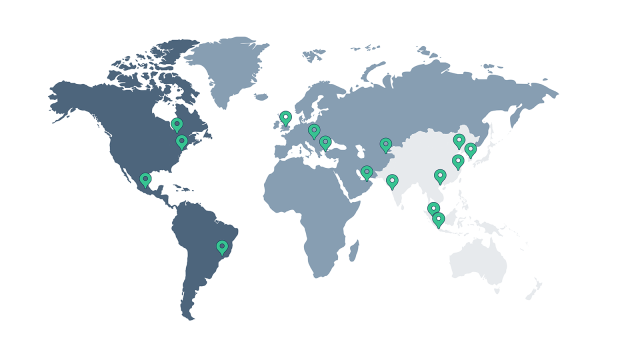These days, an unusually large amount of cheerful life can be observed on Germany's streets. At least in the cities where the Euro 2024 Football matches are taking place. Rival fans are celebrating together in harmony, and the Germans present them-selves as friendly and helpful hosts.
European guests are surprised by Germany
Guests experience how little the average German corresponds to the stereotypical caricature of the stiff Prussian with a humor deficit that is still gladly conveyed abroad. How lovely! Another reputation that many foreigners associate with Germany is that things work there. And that's where the experiences of the visiting fans are much less pleasant. It's quite embarrassing when English fans keep telling how they waited more than two hours in Gelsenkirchen for public transport to get away from the sta-dium. Or the Scottish fans, beloved in Germany, who report that mobile connections work better in the Highlands than just out-side Stuttgart's main train station.
The Germans, who struggle with the country’s infrastructure day in, day out, know full well that the reputation of reliability is a relic from better times. As the first figure shows, Germany’s trains are the least punctual in Europe, bar Slovenia. And as a frequent train traveler, I seem to be particularly unlucky: Because it feels like significantly less than two-thirds of my connections are on time. And by on time, I now consider any train that arrives by less than 15 minutes behind schedule.
Punctuality of long-distance trains in 2023
Country comparison in per cent
You get what you pay for: Germany’s investment backlog
That Germany can no longer keep up in the international comparison is not surprising. Data from the EU shows that since the turn of the millennium the public sector in Germany has spent on average only 2.3% of GDP on investments. In the Eurozone as a whole, it was almost one percentage point more, in France even two percentage points. The gap relative to peers has become smaller in recent years. But that merely means that Germany continues to fall behind, just at a slightly slower pace.
The Federal Minister of Finance, Christian Lindner, emphasizes that public investments have recently reached a "record level", and that this should also apply to the budget 2025. It's a bit like the team at the bottom of the league table boasting that there has never been a team at the bottom that conceded so few goals. That's not good enough. The huge backlog of investments needs to be tackled with a concerted effort. This will take many years. Unfortunately, I can't yet see the necessary turnaround.
Private companies must also invest more
Bashing the recent tri-party coalition has become a popular sport in Germany. However, the infrastructure problem has existed for much longer, as the data shows. But it’s not only the government that needs to step up. Many companies also urgently need to adjust. The share of investments in digitalization in Germany is very low in international comparison. So, there's much to do all around.
Let's enjoy the Euro 2024. For my part, I keep fingers crossed that Germany proceeds to the semifinals tonight. But afterwards, Germany needs to seriously roll up its sleeves. In the private sector as well as at the various levels of government. Let’s make sure that fans are duly impressed next time they visit the countr
This publication is addressed exclusively at recipients in the EU, Switzerland, Liechtenstein and the United Kingdom. This report is not being distributed by LBBW to any person in the United States and LBBW does not intend to solicit any person in the United States. LBBW is under the supervision of the European Central Bank (ECB), Sonnemannstraße 22, 60314 Frankfurt/Main (Ger many) and the German Federal Financial Supervisory Authority (BaFin), Graurheindorfer Str. 108, 53117 Bonn (Ger many) / Marie-Curie-Str. 24-28, 60439 Frankfurt/Main (Germany). This publication is based on generally available sources which we are not able to verify but which we believe to be reliable. Nevertheless, we assume no liability for the accuracy and completeness of this publication. It conveys our non-binding opinion of the market and the products at the time of the editorial deadline, irrespective of any own holdings in these products. This publication does not replace individual advice. It serves only for informational purposes and should not be seen as an offer or request for a purchase or sale. For additional, more timely in-formation on concrete investment options and for individual investment advice, please contact your investment advisor. We retain the right to change the opinions expressed herein at any time and without prior notice. Moreover, we retain the right not to update this information or to stop such updates entirely without prior notice. Past performance, simulations and forecasts shown or described in this publication do not constitute a reliable indicator of future performance. The acceptance of provided research services by a securities services company can qualify as a benefit in supervisory law terms. In these cases LBBW assumes that the benefit is intended to improve the quality of the relevant service for the customer of the benefit recipient. Additional Disclaimer for recipients in the United Kingdom: Authorised and regulated by the European Central Bank (ECB), Sonnemannstraße 22, 60314 Frankfurt/Main (Germany) and the German Federal Financial Supervisory Authority (BaFin), Graurheindorfer Str. 108, 53117 Bonn (Germany) / Marie-Curie-Str. 24-28, 60439 Frankfurt/Main (Germany). Deemed authorised by the Prudential Regulation Authority. Subject to regulation by the Financial Conduct Authority and limited regulation by the Prudential Regulation Authority. Details of the Temporary Permissions Regime, which allows EEA-based firms to operate in the UK for a limited period while seeking full authorisation, are available on the Financial Conduct Authority’s website.






